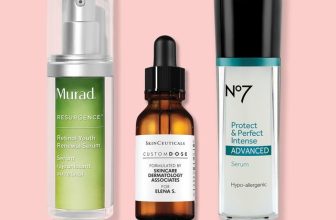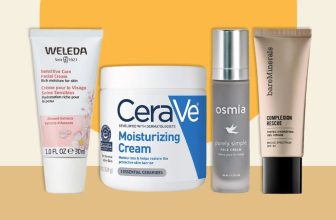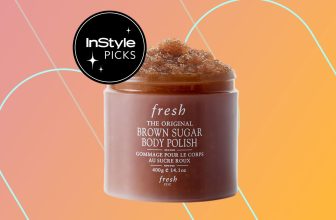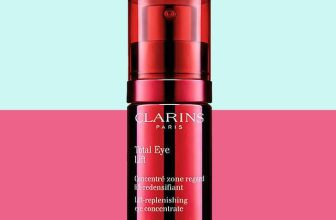Best Sunscreen Moisturizer for Face
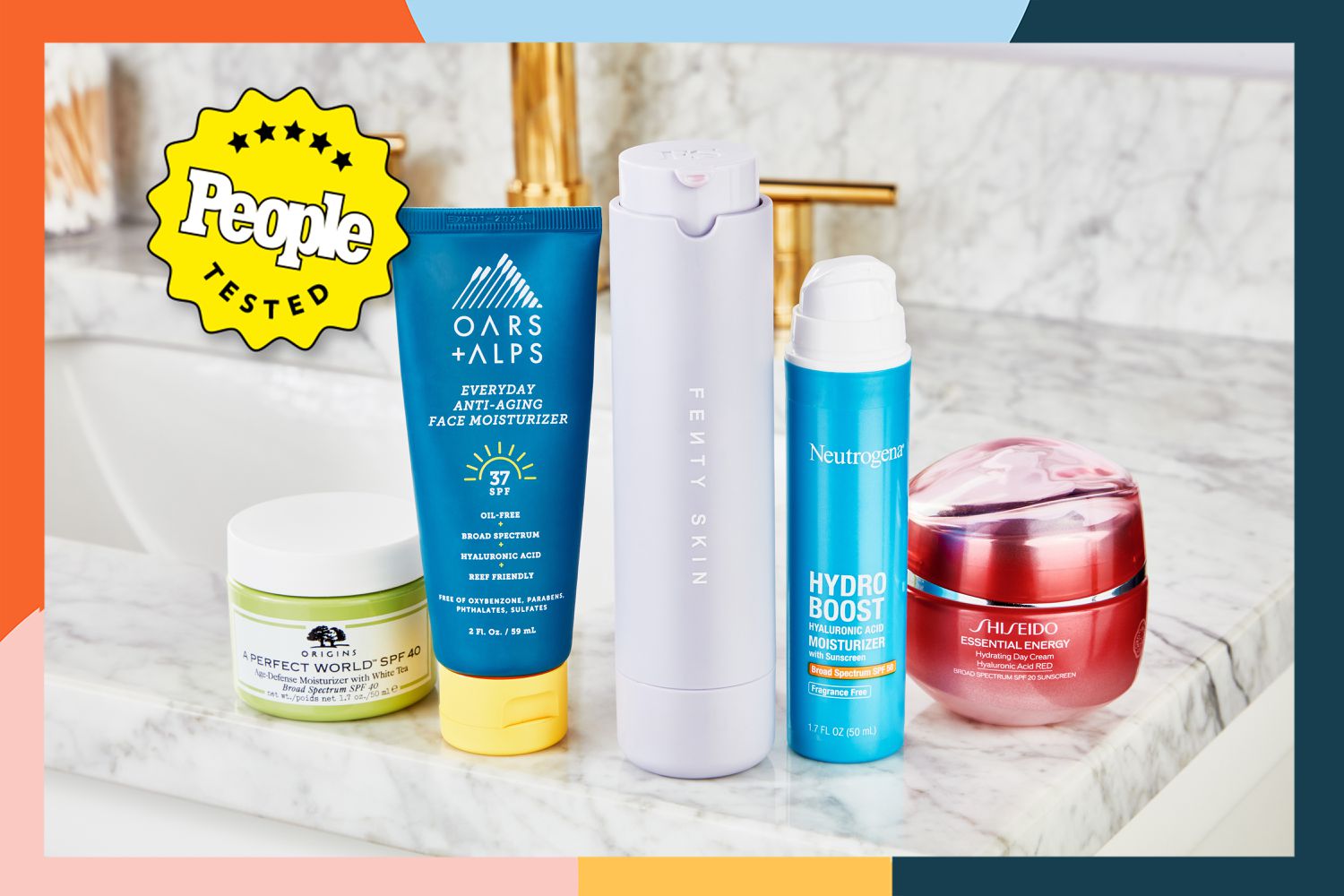
The best sunscreen moisturizer for the face is Neutrogena Hydro Boost Water Gel. This product offers sun protection and hydration in one.
Protecting your skin from the sun’s harmful rays is essential for maintaining healthy and youthful skin. A good sunscreen moisturizer not only provides sun protection but also keeps your skin hydrated and nourished. One highly recommended product is the Neutrogena Hydro Boost Water Gel.
This lightweight formula is non-greasy and absorbs quickly into the skin, providing long-lasting hydration and broad-spectrum SPF protection. Say goodbye to dry, sun-damaged skin and hello to a radiant complexion with this top-rated sunscreen moisturizer.
:max_bytes(150000):strip_icc():focal(2999x0:3001x2)/Best-Moisturizers-with-SPF-PO-tout-e0e26cec629740d69ea1ea7d05f5092b.jpg)
Introduction To Sunscreen Moisturizers
Protecting your skin from harmful UV rays is crucial for maintaining a healthy complexion. Sunscreen moisturizers offer a convenient way to combine hydration and sun protection in one easy step.
Importance Of Daily Spf
Wearing sunscreen daily helps prevent skin damage, premature aging, and reduces the risk of skin cancer.
Combining Hydration With Protection
Sunscreen moisturizers provide the dual benefit of keeping your skin hydrated while shielding it from the sun’s harmful rays.
Key Ingredients In Sunscreen Moisturizers
When it comes to protecting your skin from the harmful effects of the sun, choosing a sunscreen moisturizer with the right key ingredients is crucial. These ingredients not only provide sun protection but also offer hydration, making them essential for maintaining healthy and youthful-looking skin.
Benefits Of Zinc Oxide And Titanium Dioxide
Zinc oxide and titanium dioxide are two mineral-based ingredients commonly found in sunscreen moisturizers. They work by forming a physical barrier on the skin that reflects and scatters harmful UVA and UVB rays, providing broad-spectrum protection without causing irritation or sensitivity.
Role Of Hydrating Agents
Hydrating agents such as hyaluronic acid, glycerin, and aloe vera are often included in sunscreen moisturizers to help maintain the skin’s moisture balance. These ingredients work by attracting and retaining water, keeping the skin hydrated and preventing dryness, flakiness, and discomfort.
Types Of Sunscreen Moisturizers
When it comes to protecting your skin from harmful UV rays, finding the best sunscreen moisturizer for your face is essential. Understanding the different types of sunscreen moisturizers can help you choose the right product for your specific needs. Let’s explore the various types of sunscreen moisturizers available in the market to make an informed decision.
Mineral Vs Chemical Sunscreens
Mineral sunscreens, also known as physical sunscreens, contain active mineral ingredients such as zinc oxide and titanium dioxide. These ingredients work by sitting on top of the skin and reflecting the sun’s rays. On the other hand, chemical sunscreens contain organic compounds that absorb UV rays and convert them into heat, which is then released from the skin. Both types offer effective sun protection, but some individuals may prefer mineral sunscreens due to their gentle nature.
Creams Vs Gels Vs Sprays
When it comes to the formulation of sunscreen moisturizers, there are various options to choose from, including creams, gels, and sprays. Creams are popular for their hydrating properties and are suitable for normal to dry skin types. Gels are lightweight and often preferred by those with oily or acne-prone skin as they provide a non-greasy finish. Sprays offer convenience and are easy to apply, making them ideal for reapplying sunscreen throughout the day. Understanding the differences between these formulations can help you select a sunscreen moisturizer that aligns with your skin type and preferences.
Choosing The Right Spf Level
When it comes to keeping your skin healthy and protected from the harmful rays of the sun, using a sunscreen moisturizer for your face is a must. But with so many options available in the market, it can be daunting to choose the best sunscreen moisturizer for your skin type and needs. One of the most important factors to consider when making a choice is the SPF level.
Understanding Spf Ratings
SPF stands for Sun Protection Factor, and it measures the level of protection a sunscreen provides against UVB rays, which are the primary cause of sunburn and skin cancer. The higher the SPF rating, the more protection your skin will receive. It’s important to note that no sunscreen can provide 100% protection, and a higher SPF doesn’t necessarily mean you can stay out in the sun longer.
| SPF Level | Sun Protection |
|---|---|
| SPF 15 | Blocks 93% of UVB rays |
| SPF 30 | Blocks 97% of UVB rays |
| SPF 50 | Blocks 98% of UVB rays |
Factors Influencing Spf Choice
Several factors can influence your choice of SPF level, including your skin type, the time of day you’ll be outside, and the activities you’ll be doing. If you have fair skin or a history of skin cancer, you may want to choose a higher SPF. If you’ll be outside during peak sun hours, between 10 am and 4 pm, you may also want to opt for a higher SPF. If you’ll be swimming or sweating, choose a water-resistant sunscreen with an SPF of at least 30.
- Choose an SPF level based on your skin type, time of day, and activities
- Higher SPF doesn’t mean you can stay out in the sun longer
- No sunscreen can provide 100% protection against UVB rays
By understanding the SPF ratings and considering the factors that influence your choice, you can select the best sunscreen moisturizer for your face and enjoy safe and healthy fun in the sun.
Benefits For Different Skin Types
Using sunscreen moisturizer is important to protect your skin from harmful UV rays and keep it hydrated. However, choosing the right sunscreen moisturizer for your skin type can be a challenge. Different skin types have different needs and concerns. Here are some benefits of using sunscreen moisturizers for different skin types:
Formulas For Sensitive Skin
If you have sensitive skin, you need a sunscreen moisturizer that is gentle and non-irritating. Look for products that are fragrance-free, hypoallergenic, and formulated without harsh chemicals. These products should also contain soothing ingredients like aloe vera, chamomile, and oatmeal to calm and protect your skin.
| Product | Key Features |
|---|---|
| La Roche-Posay Toleriane Double Repair Face Moisturizer UV SPF 30 | Fragrance-free, non-comedogenic, and contains ceramides to restore skin barrier |
| CeraVe AM Facial Moisturizing Lotion with Sunscreen SPF 30 | Fragrance-free, non-comedogenic, and contains ceramides and hyaluronic acid to hydrate and repair skin |
Options For Oily Or Acne-prone Skin
If you have oily or acne-prone skin, you need a sunscreen moisturizer that is lightweight and non-comedogenic. Look for products that are oil-free, non-greasy, and won’t clog your pores. These products should also contain ingredients like salicylic acid, niacinamide, and zinc oxide to control oil, reduce inflammation, and prevent breakouts.
- Neutrogena Clear Face Liquid Lotion Sunscreen SPF 55
- EltaMD UV Clear Facial Sunscreen Broad-Spectrum SPF 46
Hydrating Formulas For Dry Skin
If you have dry skin, you need a sunscreen moisturizer that is hydrating and nourishing. Look for products that are rich in emollients and humectants to lock in moisture and prevent dryness. These products should also contain ingredients like glycerin, hyaluronic acid, and ceramides to soothe and repair your skin barrier.
- First Aid Beauty Ultra Repair Pure Mineral Sunscreen Moisturizer SPF 40
- Paula’s Choice RESIST Skin Restoring Moisturizer with SPF 50
Top Sunscreen Moisturizers Reviewed
The quest for the perfect sunscreen moisturizer for the face can be overwhelming, with countless options promising sun protection and hydration. To help you navigate through the sea of choices, here are the top sunscreen moisturizers reviewed, categorized by budget-friendly options and luxury brands worth the splurge.
Budget-friendly Choices
When it comes to effective sun protection without breaking the bank, these budget-friendly sunscreen moisturizers are top contenders:
- Neutrogena Hydro Boost Water Gel: This lightweight, non-greasy formula provides broad-spectrum SPF and hydrates the skin with hyaluronic acid.
- CeraVe AM Facial Moisturizing Lotion: Offering SPF 30, this moisturizer includes ceramides and niacinamide to maintain the skin’s natural barrier.
- Aveeno Positively Radiant Daily Moisturizer: Infused with Total Soy Complex, this SPF 30 moisturizer helps even out skin tone while protecting from sun damage.
Luxury Brands Worth The Splurge
For those willing to invest in luxurious skincare, these high-end sunscreen moisturizers deliver both sun protection and indulgence:
- La Mer The Broad Spectrum SPF 50 UV Protecting Fluid: This lightweight fluid provides powerful sun protection while nourishing the skin with La Mer’s signature Miracle Broth.
- Shiseido Urban Environment Oil-Free UV Protector: With SPF 42, this oil-free sunscreen moisturizer offers a velvety texture and advanced protection against UV rays.
- Drunk Elephant Umbra Sheer Physical Daily Defense: Featuring SPF 30, this sheer sunscreen moisturizer blends effortlessly and is enriched with antioxidants for added skin benefits.
Application Tips For Maximum Protection
When it comes to protecting your skin from the sun’s harmful rays, applying the best sunscreen moisturizer for your face is crucial. By following these application tips, you can ensure maximum protection against sun damage and premature aging.
Best Practices For Application
For maximum protection, it’s important to apply the sunscreen moisturizer generously and evenly to all exposed areas of your face. Use gentle, upward motions to spread the product, making sure to cover the entire face, including the ears and neck. Remember to apply the sunscreen moisturizer at least 15 minutes before sun exposure to allow it to fully absorb into the skin.
Common Mistakes To Avoid
One common mistake is not applying enough sunscreen moisturizer. Be sure to use an adequate amount to achieve the stated SPF level. Additionally, avoid rubbing the product vigorously into the skin, as this can diminish its effectiveness. Furthermore, do not forget to reapply the sunscreen moisturizer every two hours, or more frequently if swimming or sweating.
:max_bytes(150000):strip_icc()/byr-primary-face-moisturizer-spf-tstaples-144-b7038a9d321e4861b950a914adfb463f.jpg)
Integrating Sunscreen Moisturizer Into Your Skincare Routine
Integrating sunscreen moisturizer into your skincare routine is essential for maintaining healthy and youthful skin. By incorporating a multifunctional product that combines hydration with sun protection, you can simplify your daily regimen while safeguarding your skin against harmful UV rays.
Layering Products Effectively
When layering skincare products, apply sunscreen moisturizer as the final step to ensure proper protection. Allow each layer to absorb before applying the next product to optimize efficacy.
Adjusting For Seasonal Changes
Modify the formula of your sunscreen moisturizer based on seasonal variations. Opt for a lighter texture in summer to prevent clogged pores and a richer formulation in winter for added hydration and protection.
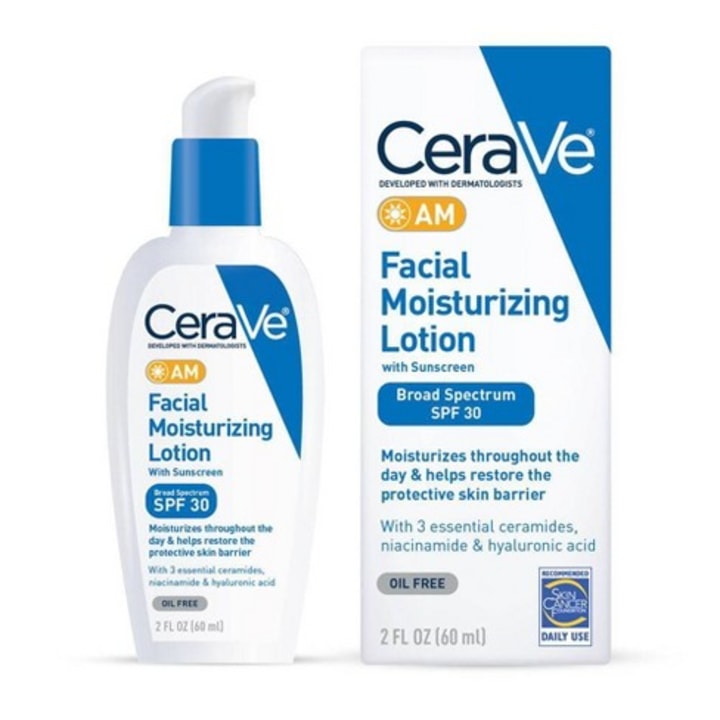
Frequently Asked Questions
Which Is Best For Face Moisturizer Or Sunscreen?
For face, use a moisturizer daily to hydrate and nourish. Apply sunscreen to protect from UV rays when going outside.
What Is A Good Face Moisturiser With Spf?
A good face moisturizer with SPF should provide hydration and sun protection. Look for a product with at least SPF 30 and non-comedogenic ingredients. It should be suitable for your skin type and offer broad-spectrum protection against UVA and UVB rays.
What Do Dermatologists Recommend As A Face Moisturizer?
Dermatologists recommend a face moisturizer with ingredients like hyaluronic acid, glycerin, and ceramides for hydration.
What Is The Most Effective Sunscreen For The Face?
The most effective sunscreen for the face provides broad-spectrum protection with SPF 30 or higher. Look for non-comedogenic formulas suitable for your skin type.
Conclusion
Finding the best sunscreen moisturizer for your face is essential for skin protection. The right product can keep your skin hydrated, while shielding it from harmful UV rays. With a wide range of options available, it’s important to consider your skin type and specific needs to find the perfect fit.



